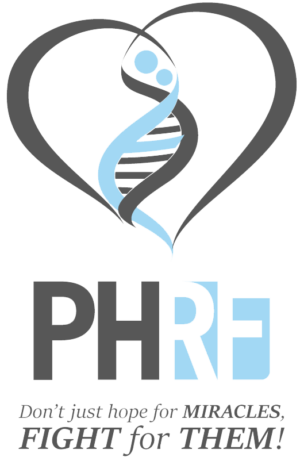September 2014 marked an important month for PTHS families around the world, but this time it was even more special in Italy, where some of the almost 25 families with diagnosed children got together and constituted the Pitt Hopkins Syndrome Italian Association, making an official presentation on September 20th, right after the celebration of the 2nd Pitt Hopkins Awareness Day.
The Agostino Gemelli Teaching Hospital hosted the presentation, which counted with wide participation of families coming from all parts of Italy, doctors, friends and students. The Association was introduced by its President Gianluca Vizza, who thanked all families who made it possible as well as doctors and friends who supported and paved the way. Vizza explained about the difficulties faced when they received a positive diagnose for his son Davide, how his wife Tiziana decided that they needed to do something to give their child a better life, and how together with the other families and the support of many friends in the starting process, this Association became a reality.
Presentations by Genetist Zollino, and Butarelli, Rare Disease Association President followed. Two moms coming from different Italian regions, told their stories and struggles: Elena Vattiata from Sicily and Angela Villa from Lombardy. Closing the presentation Claudia Diez de Medina launched the 100 MORE Campaign.
Following the presentation, a lunch meeting for PTHS families was organized, it was the first time that a major part of families in Italy got together, three of them came with their children Carmen (Naples), Alessia (Trapani) and Martina (Rome), who turned to be the best and most patient participants in the event! It was a very emotional moment, giving us the possibility to share experiences, thoughts, doubts and give suggestions aside from what we expect and what we would like to do.
Families agreed that we have a great challenge ahead with the newly born Association, the immediate aim is to create and coordinate a support group for associated families and newcomers, act as a guide to face bureaucracies and protect the rights of our children and support Pitt Hopkins Syndrome research but further discussion on the latter is needed.
Finally, starting early in September the preparation for the presentation of the Association was given major attention by Italian mainstream media including a couple of television networks. Moreover a series of on-line newspaper blogs, associations published and shared the invitation and shared the information. And right after the presentation, a couple of local newspapers interviewed the Zuffogrosso family in Treviso and the Labat Villa family in Bergamo, while in Rome, the Associaction’s President Vizza was interviewed by Sky Italia satellite TV…..we couldn’t do better in raising awareness in Italy…. and this is just the beginning!

